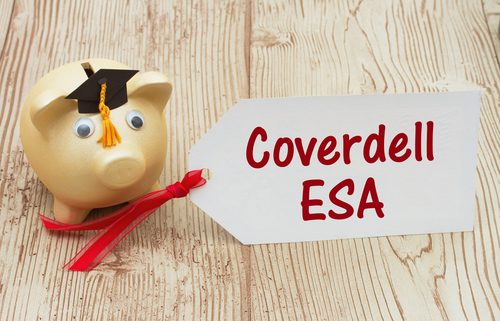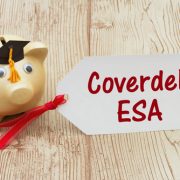Can You Use a Self-Directed CESA for Special Needs Beneficiaries?
For many parents, the process is simple. Put some money aside for your child’s education, wait until they turn 18, and hope for the best. But there are some children with special needs, and those children require love and support that may extend well beyond the age of 18. That naturally gets parents asking: is a powerful account like a Self-Directed CESA useful in that kind of situation? And if so, how does it work?
What is a Self-Directed Coverdell Education Savings Account?
We will start with defining the account in the first place. A Self-Directed CESA, as we define it at our Coverdell section, “is an account created as an incentive to help parents and students save for education expenses.”
For many people, that means saving up for the education of a child without special needs. And it certainly works great for that purpose! With a Coverdell Education Savings account, parents can do the following:
- Putting aside money that can grow tax-free. This money is not considered “before-tax” money. That means that you will not be able to get tax savings for making contributions here. However, once the money is in the account, the money can grow tax free. This gives you an incentive to put money away, knowing that every dollar invested is going to expand to its maximum possible amount.
- Your beneficiary will not owe taxes on the distributions if those distributions end up being less than the beneficiary’s qualified education expenses at a specific institution.
All of this is pretty straightforward if you have a child without special needs planning on having an education after high school. But what about if you do need to name a beneficiary who has special needs? Do new rules kick in? Here is what you will need to know.
The Rules of a Coverdell Education Savings Account with a Special Needs Beneficiary
First off, the answer is yes: you can name a special needs individual as the beneficiary of a Self-Directed CESA. In fact, when this happens, you will have additional advantages. For example, the special needs beneficiary will continue to require some additional support after turning 18, so it is possible for you to continue to make contributions.
As the IRS website, the beneficiary of a Self-Directed Coverdell Education Savings account must either be under the age of 18 or a special needs beneficiary. Here is an example of a rule the IRS sets in place that will change depending on who the beneficiary is:
Amounts remaining in the account must be distributed when the designated beneficiary reaches age 30 unless the beneficiary is a special needs beneficiary.
This gives you, the parent, a lot of options. With a special needs beneficiary, age is not so much an issue as the support you provide. It means that you can continue to let the account enjoy tax-free growth while it piles up in the account, giving your special needs child the advantage that they should have. This is a powerful way to decide that you are going to support the special needs child on your own terms, enjoying an independent style of investing that may help you maximize every dollar put away.
A Self-Directed CESA is especially useful in times like these, when education can be tremendously expensive, and every child needs to start life on the right foot. Interested in learning more about Self-Directed IRAs? Contact American IRA, LLC at 866-7500-IRA (472) for a free consultation. Download our free guides or visit us online at www.AmericanIRA.com.





